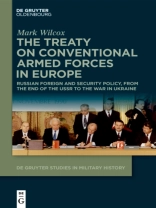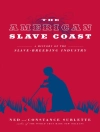This work examines the CFE Treaty as a factor in Russia’s foreign and security policy. Moscow showed amazing persistence in their relationship with the "cornerstone of European security." Their approach to the treaty was a genuine attempt to shape the security environment in Europe and the former USSR. The treaty also enabled the dismantling of large conventional forces as they returned from Eastern Europe and transitioned into the armies of the newly independent states of the former USSR. The CFE Treaty, though, proved ineffective at constraining the enlargement of NATO. Simultaneously, Moscow’s foreign and security policy evolved from one that focused on the domestic development of the country to that of a more confident state reasserting itself as a great power. Drawing extensively on primary sources and analyses by Russian authors, this book employs two historical narratives, case studies, and a conceptual framework to show that while Moscow remained engaged with the CFE Treaty, undesired effects on Russia’s national interests gradually accrued at the expense of desired ones, leading Vladimir Putin to withdraw Russia from the treaty as an act of de-coupling from the "collective West." This book is relevant to scholars and policymakers who want to understand Russia’s approach to arms control as an element of military security.
Mark Wilcox
Treaty on Conventional Armed Forces in Europe [PDF ebook]
Russian Foreign and Security Policy, from the End of the USSR to the War in Ukraine
Treaty on Conventional Armed Forces in Europe [PDF ebook]
Russian Foreign and Security Policy, from the End of the USSR to the War in Ukraine
Mua cuốn sách điện tử này và nhận thêm 1 cuốn MIỄN PHÍ!
Ngôn ngữ Anh ● định dạng PDF ● Trang 330 ● ISBN 9783111332031 ● Nhà xuất bản De Gruyter ● Được phát hành 2024 ● Có thể tải xuống 3 lần ● Tiền tệ EUR ● TÔI 9441870 ● Sao chép bảo vệ Adobe DRM
Yêu cầu trình đọc ebook có khả năng DRM












